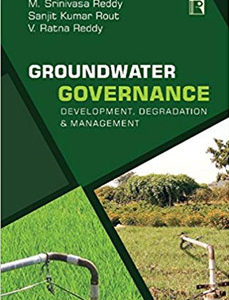WATER MANAGEMENT: Multiple Dimensions
₹1,095.00 Original price was: ₹1,095.00.₹876.00Current price is: ₹876.00.
25 in stock
For many years now it has been recognized that water management and development is going to be an increasingly complex and sensitive task in the 21st century involving various facets and dimensions with more and more regions facing situations of water stress or water scarcity and problems not only of availability of fresh water, but also of its quality. Thus, the importance of the effective management of water cannot be overemphasized. It is in this backdrop that the present volume gives a panoramic view of the various dimensions of the water management in India. Certain critical and crucial issues pertaining to water in the Indian context as discussed by scholars, researchers, policy makers and implementors have been put together in this volume in articles which touch upon water demand projections, canal irrigation and participatory irrigation management, use of water from tanks and of groundwater watershed development, rainwater harvesting, land-water management, rural drinking water, domestic use of water supply in cities, integrated water resource management, managing water in rural areas, community water management, community-based organizations and water users groups, role of NGOs, interlinking of rivers, environmental uses of water, water conservation, federal issues in water resources use, the water scenario in an Indian state, training and capacity building for the water sector, and water issues and strategies at global and all-India levels.
Besides, water use has been discussed in all its facets and dimensions: sociological, economic, institutional, administrative, cultural, managerial, behavioural, participatory, technical, environmental, developmental, policy-oriented, grassroots-implementational etc.
It is hoped that the book will of immense help to scholars, researchers, analysts, commentators, academicians, policy makers and implementors.
| Author's Name | |
|---|---|
| Binding | |
| Release Year | |
| Language | |
| Publisher |
Related products
Environment
Environment
Environment
Environment
Environment











